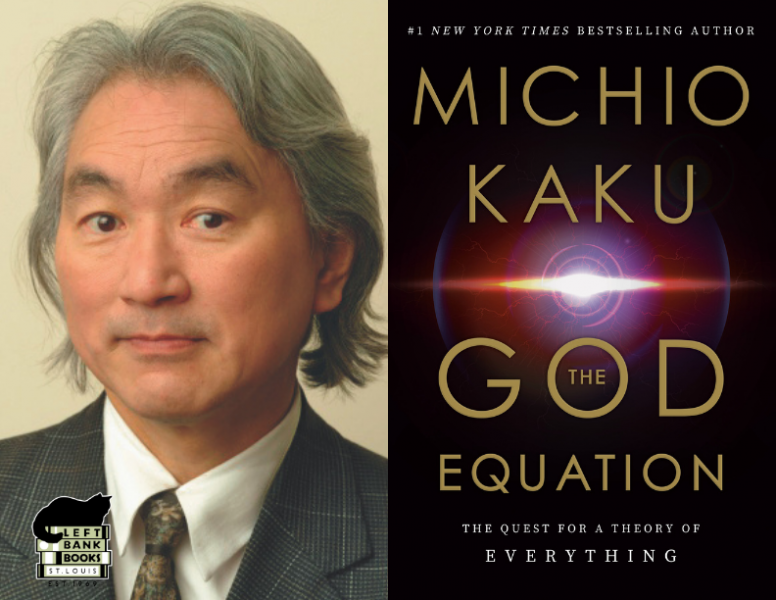
Michio Kaku, a theoretical physicist, writes about the greatest quest in Science. When Sir Isaac Newton discovered the laws of motion and gravity, he unified the rules of physics. Since then, physicists have been discovering new forces and incorporating them into ever-greater theories of how everything works. But the major breakthroughs of the 20th century–relativity and quantum mechanics–are incompatible. So today’s physicists have been attempting to find a way to combine the theories of relativity and quantum mechanics to ultimately tie all the forces in the universe together into one beautiful equation that can unlock the deepest mysteries of space and time.
We’re not there yet, but Michio Kaku thinks we’re getting close. Despite the complexity of these ideas, Kaku writes clearly about what research is being done and the direction physics is likely to take in the future. If you’re interested in the state of the quest for “The Theory of Everything,” The God Equation holds a lot of the answers. GRADE: A
TABLE OF CONTENTS:
Introduction to the final theory — 1
Unification, the ancient dream — 7
Einstein’s quest for unification — 32
Rise of the quantum — 52
Theory of almost everything — 77
The dark universe — 106
Rise of string theory : promise and problems — 141
Finding meaning in the universe — 182
Acknowledgements — 201
Notes — 203
Selected Reading — 211
Index — 213
It will be fun when we can see a unification of quantum mechanics and Newtonian/Einsteinian physics…the NOVA episode about this was recently repeated.
Todd, and then we have the surge in interest in Artificial Intelligence with ChatGPT and Google’s BARD.
Bravo, George. I am sure this is over my head having only taken baby science courses in college but I am glad you can understand it.
Patti, I also understand the panic about Artificial Intelligence is overblown.
Nope, not interested.
Jeff, once in a while I like to dabble in Quantum Mechanics and String Theory, too!
Wow!
I have to admire you, george!
Having studied some physics 55/60 years ago I have to admit that those “newer” theories (dark matter, string theory etc) bring my brain to the limit.
I really don’t know whether we’ll find easier and simpler theorems for them. From my experience in maths I fear not …
Wolf, computers help in the study of dark matter and string theory.
Hoping I’m wrong, but I suspect they do it with mirrors.
Jerry, if not mirrors…then smoke!